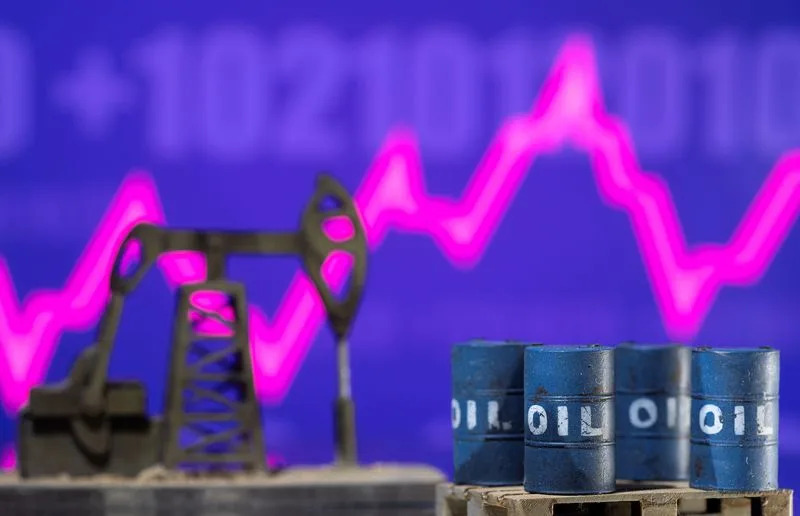Oil prices settled higher on Tuesday, driven by concerns over limited supply from Russia and Iran due to Western sanctions and expected higher Chinese demand.
Brent Crude Futures Settle at $77.05 a Barrel
Brent crude futures settled at $77.05 a barrel, up 75 cents or 0.98% from the previous day’s close. This increase in price is attributed to the ongoing concerns over supply disruptions due to Western sanctions on Russia and Iran.
U.S. West Texas Intermediate (WTI) Crude Finishes at $74.25 a Barrel
Meanwhile, U.S. West Texas Intermediate (WTI) crude finished at $74.25 a barrel, up 69 cents or 0.94% from the previous day’s close. This increase in price reflects the growing concerns over supply disruptions and the expected higher demand from China.
Market Analysts Weigh In on the Situation
Forex market analyst Razan Hilal pointed out that traders are looking to the Chinese stimulus plans to drive growth as supplies are tight following the Christmas and New Year’s holidays. "While the market is currently range-bound, it is recording gains on the back of improved demand expectations fueled by holiday traffic and China’s economic pledges," said Hilal in a morning note. However, she noted that the primary trend remains bearish.
Small Supply Disruption Risks on Iranian Crude Exports to China
UBS analyst Giovanni Staunovo observed that some market participants have started to price in small supply disruption risks on Iranian crude exports to China. This is due to concerns over sanctions tightening supply and the potential impact on oil markets.
Increased Demand for Middle Eastern Oil
The concern over sanctions has led to increased demand for Middle Eastern oil, particularly from Saudi Arabia. The February oil prices to Asia have risen, marking the first such increase in three months. This reflects the growing importance of Middle Eastern oil exports in meeting global demand.
Shandong Port Group Issues Notice Banning U.S.-Sanctioned Oil Vessels
In China, Shandong Port Group issued a notice banning U.S.-sanctioned oil vessels from its network of ports. This move is likely to restrict blacklisted vessels from major energy terminals on China’s east coast. The affected ports include Qingdao, Rizhao, and Yantai, which are significant terminals for importing sanctioned oil.
Cold Weather Boosts Heating Oil Demand
In the U.S. and Europe, cold weather has boosted heating oil demand, contributing to the increase in oil prices. However, global economic data has capped the price gains, with euro zone inflation accelerating in December.
Euro Zone Inflation Accelerates
The European Central Bank’s (ECB) decision to cut interest rates may be delayed due to higher inflation in Germany. This suggests that the ECB may not be able to implement further rate cuts across the euro zone as quickly as expected.
Technical Indicators Suggest Oil Prices May Decline
Market analysts have pointed out that technical indicators for oil futures are now in overbought territory, indicating that sellers are likely to step in and take advantage of the strength. This could temper additional price advances and lead to a decline in oil prices.
Economic Data to Watch
Market participants will be closely monitoring economic data releases, including the U.S. December non-farm payrolls report on Friday. The report is expected to provide insights into the labor market and its impact on oil demand.
Industry Expert Weighs In
Phil Flynn, senior analyst with the Price Futures Group, noted that "we have a very tight physical market and see demand exceeding supply." This situation could lead to further declines in inventories globally.

